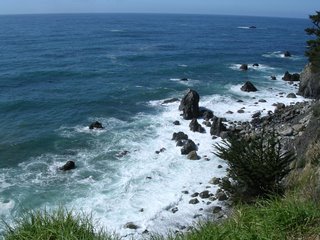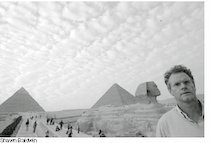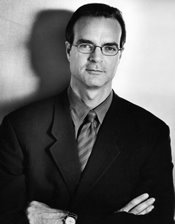
There’s one thing you can say about Michael Pollan: he knows how to make a room of 800 people laugh.
Pollan spoke to a sold-out audience at San Francisco’s City Arts and Lectures Wednesday night and he easily got everyone to see the bright side of the increasing industrialization in the food industry. His new book, The Omnivore’s Dilemma: A Natural History of Four Meals, looks at the different ways food is produced in the United States. Pollan uses various meals – a McDonald’s hamburger, a dinner cooked with food bought from Whole Foods, meat raised on a sustainable farm, and a dinner made up of foraged and hunted foods – to examine what we eat and why.
From the outset of the talk, Pollan acknowledged he has an obsession with corn – how the government subsidizes farmers to grow it, how cows now eat corn instead of grass, even though their systems are not built to digest it, and how cheap corn has produced the ubiquitous high fructose corn syrup that is making Americans fat. He suffers from “soft pore cornography.”
“If you have read anything about me and this book you know I have kind of an obsession with corn. It’s not a healthy thing and I’m trying to get over it,” he said.
That prompted a laugh – as did many of other Pollan’s comments. He talked about how visiting the Whole Foods near his home in Berkeley was “a rich literary experience.” The store puts up signs telling the provenance of many items, such as the story of how the blackberries came from Chile.
“There’s so much to read…. About salmon caught by villagers, chickens running free. I call it supermarket pastoral because it’s a whole new literary genre.”
Pollan has concluded that the healthiest way to eat is as locally as possible – consuming food from farmers’ markets or CSAs, and buying produce that is in season. The food is not only fresher, but it tastes better, and fewer fossil fuels are expended shipping the food around the country. But Pollan acknowledges that most of America cannot accomplish this – on the East Coast, for example, it is not possible to eat local vegetables in the winter. There is an elitism in the food movement, he said, that needs to be addressed.
While Pollan clearly appreciates a good meal, he recognizes that America sometimes elevates certain things to a level they do not deserve. Take the case of salad, he said.
“We have this completely unnatural, virtuous attachment to salad. But there’s no food there. Have you ever looked at the nutrient value of a salad? It’s all water.”





